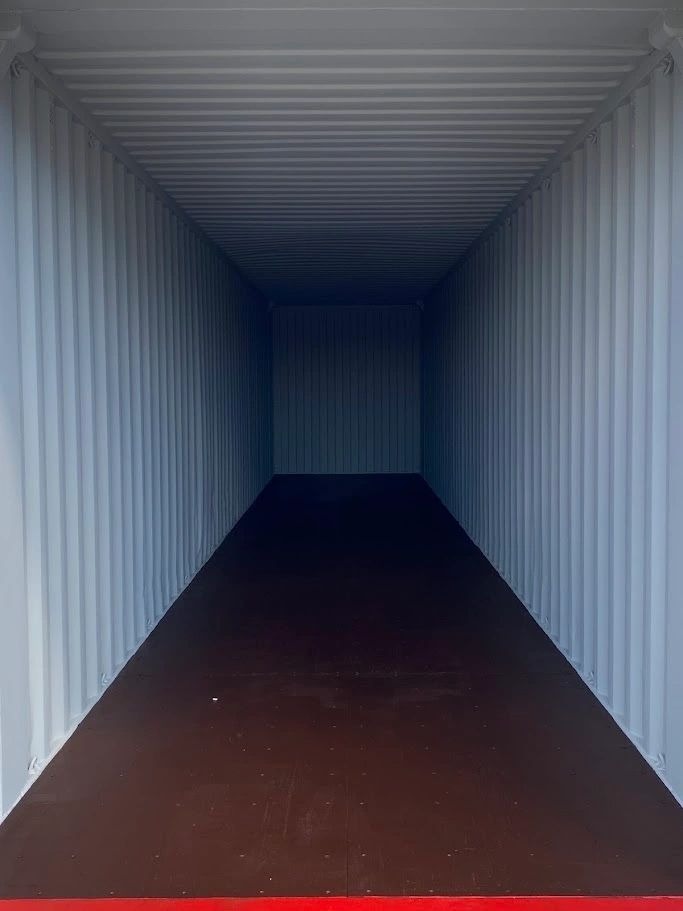The 3 Greatest Moments In Shipping Container Leasing History

The Growing Trend of Shipping Container Leasing: A Comprehensive Guide
Over the last few years, shipping container leasing has actually become a feasible and sustainable solution for businesses and individuals alike. Offered its functionality and cost-effectiveness, lots of sectors are taking advantage of the advantages of leasing containers rather than buying them outright. This post explores the ins and outs of shipping container leasing, its benefits, essential factors to consider, and answers to some typical questions relating to the practice.
Understanding Shipping Container Leasing
Shipping container leasing involves leasing a shipping container for a fixed period. Flat Rack Containers is hassle-free for companies that need momentary storage solutions or that participate in logistics and transportation without the requirement to own containers outright.
Why Lease Shipping Containers?
The appeal of leasing shipping containers can be attributed to several factors, each offering special advantages:
- Cost Efficiency: Leasing often requires less upfront capital than acquiring containers outright. This can release up money for other critical locations in a business.
- Versatility: With leasing arrangements, business can pick the duration of the lease based upon their operational requirements, permitting them to adjust to changing scenarios quickly.
- No Maintenance Concerns: When leasing, the owner-- generally the leasing company-- bears the duty of maintenance, repairs, and evaluations, decreasing the concern on the lessee.
- Variety of Options: Lease contracts typically provide access to numerous container types, sizes, and conditions, catering to specific requirements.
- Scalability: As companies grow, they can quickly increase or reduce their number of containers based upon current demands, making it simpler to scale operations.
Secret Considerations Before Leasing
No matter the advantages, numerous factors must be thoroughly weighed before entering a shipping container lease contract:
- Duration of Lease: Understand the terms and length alternatives offered. Is it a short-term lease, or exists an alternative for long-term leasing?
- Container Condition: Inspect the container condition before signing any arrangement to guarantee it meets the desired purpose-- be it for storage, transport, or living spaces.
- Cost Structure: Look for concealed costs-- such as delivery charges, or charge fees for damages. Understand what is consisted of in the lease arrangement.
- Transport Logistics: If the container needs to be carried, guarantee that the leasing business can accommodate delivery and pick-up logistics.
- Insurance coverage Options: Check what insurance coverage covers the leased containers in case of damage or theft.
Shipping Container Leasing Options
The leasing market provides a variety of container types and leasing agreements to suit various needs. The table listed below offers a glimpse into typical kinds of leasing options:
| Leasing Type | Description | Perfect For |
|---|---|---|
| Short-Term Leasing | Leasings typically lasting weeks to months. | Seasonal companies or events. |
| Long-Term Leasing | Normally covers several months to years. | Permanent setups or companies with continuous shipping requirements. |
| Dry Storage Leasing | Basic containers used for general storage. | Organizations needing dry storage. |
| Refrigerated Leasing | Containers geared up with refrigeration. | Disposable products or temperature-sensitive products. |
| Modified Containers | Containers adapted for particular usage requirements. | Pop-up stores, mobile offices, etc. |
Benefits of Leasing vs. Buying
Below is a comprehensive comparison of the benefits of leasing shipping containers versus buying them outright:
| Category | Leasing | Purchasing |
|---|---|---|
| Upfront Cost | Lower preliminary financial investment. | High in advance costs. |
| Maintenance | Less duty; business handles repair work. | Lessee is accountable for maintenance. |
| Flexibility | Easy modification based on demand. | Tough to sell or customize. |
| Devaluation | No effect on balance sheets. | Loss of worth over time. |
| Range | Access to various options per requirement. | Minimal to what is acquired. |
Frequently Asked Questions (FAQ)
How do I discover a trustworthy shipping container leasing business?
- Check online reviews, compare leasing rates, and inquire about consumer service to assess the reputation of various companies.
What types of containers can be rented?
- Shipping containers can vary widely, consisting of basic dry vans, refrigerated containers, and even modified containers for specialized needs.
What happens at the end of a lease duration?
- At the end of the lease, the container is typically returned to the leasing company. Some companies may provide a purchase alternative if you wish to keep it.
Are there any surprise expenses in leasing containers?
- It's crucial to check out the leasing arrangement completely to identify any covert expenses associated with damage, cleaning, or early termination charges.
Can I customize the container throughout the lease?
- Typically, modifications require approval from the leasing business, as unapproved modifications can break lease terms.
Is insurance needed for leased containers?
- Many leasing companies need insurance coverage for leased containers. It's advisable to check the particular requirements before leasing.
Leasing shipping containers uses a practical option for organizations and individuals needing flexible and affordable storage or transportation options. With an industry loaded with variety and competitive benefits, business can make informed choices customized to their particular needs. By comprehending the options available and carefully thinking about factors before getting in a leasing agreement, organizations can best position themselves for success without the monetary concern of ownership.

